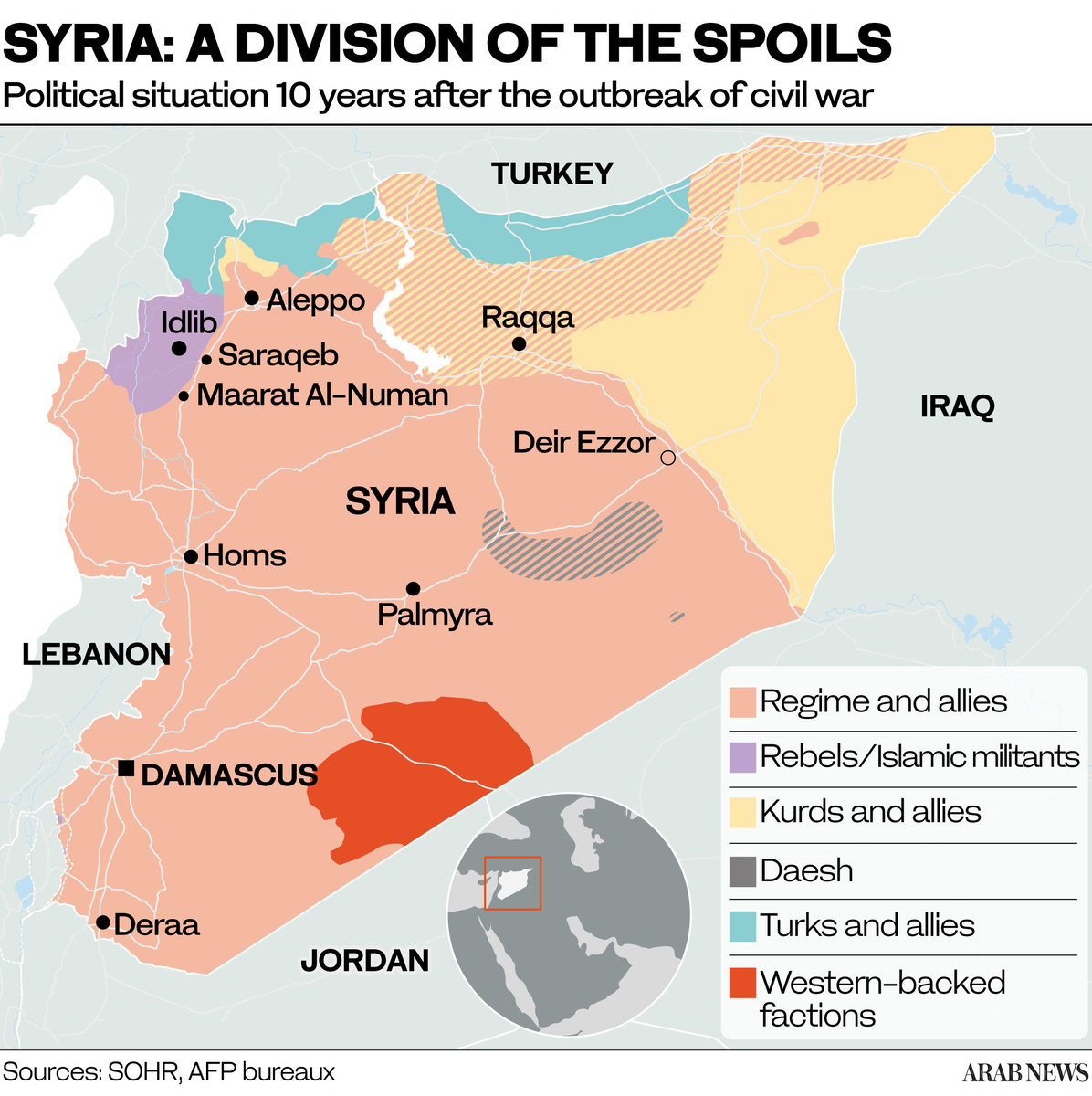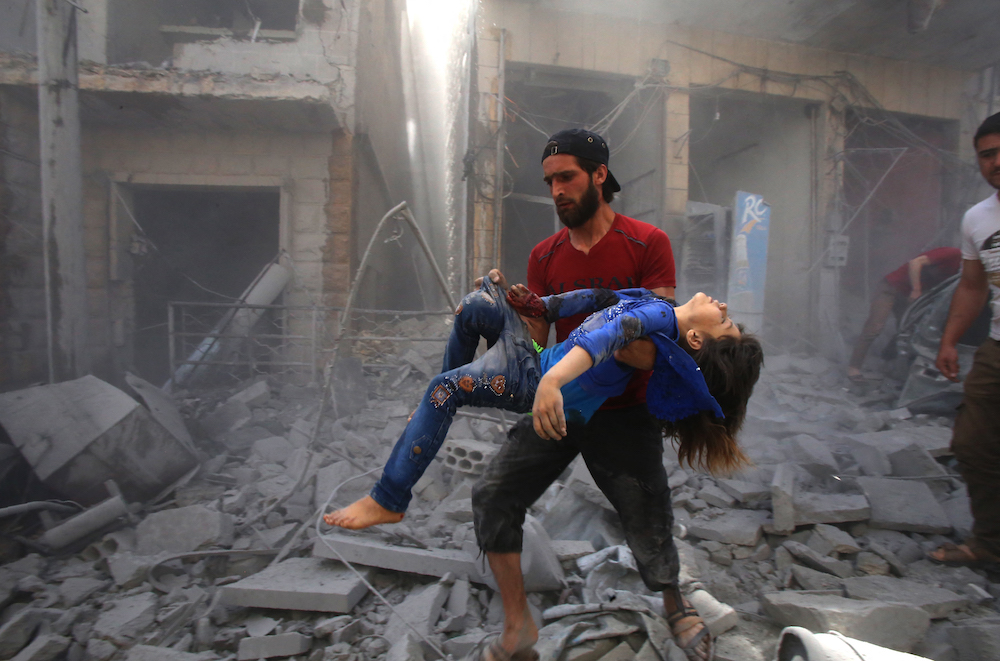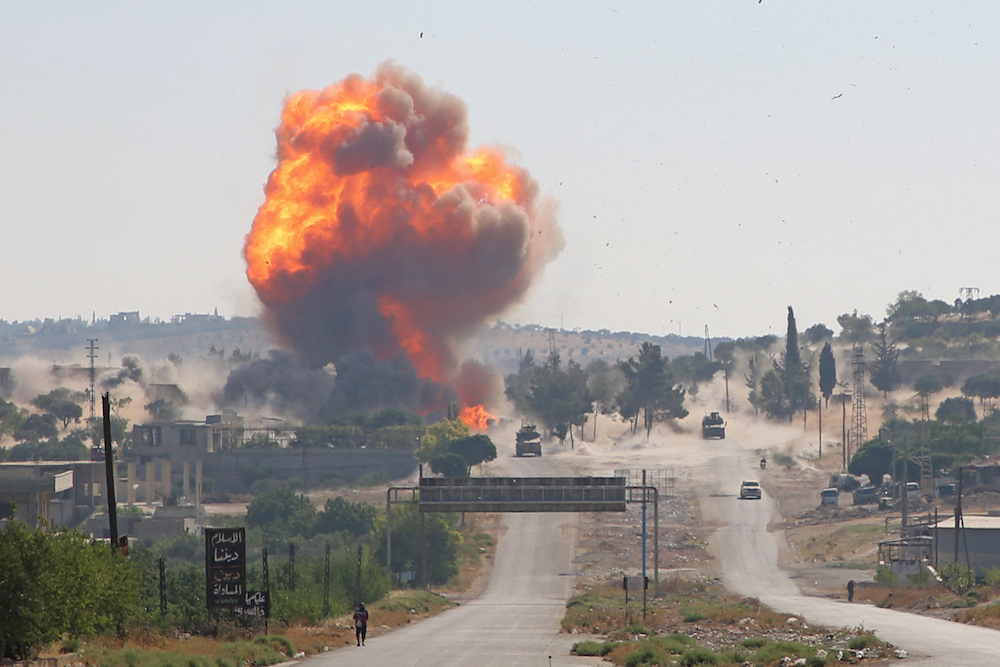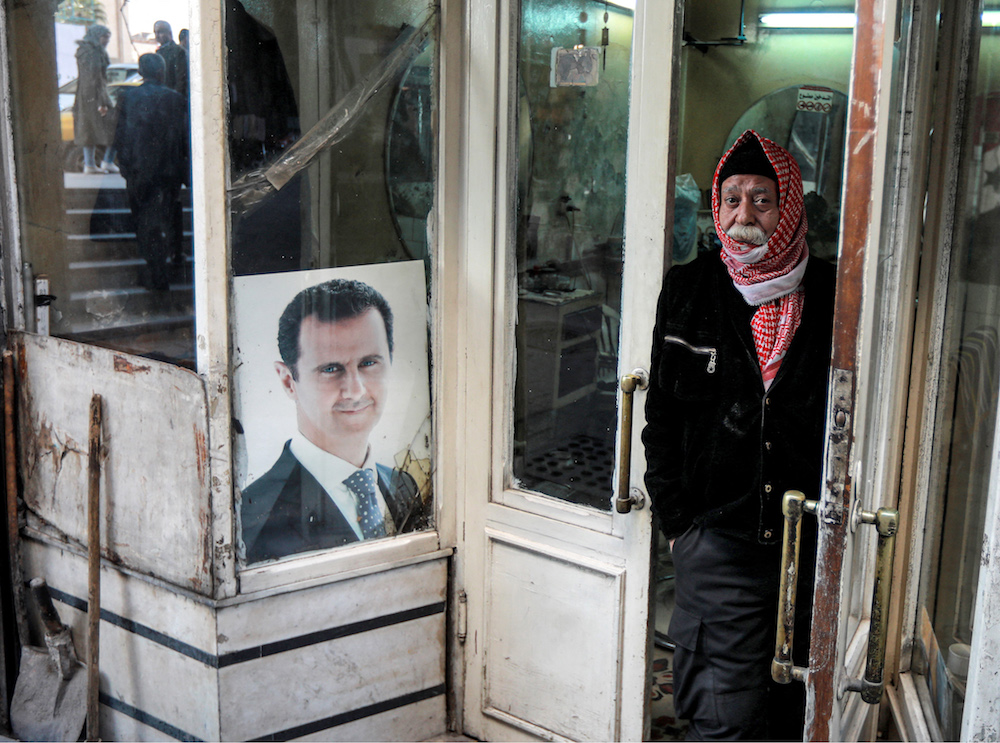MISSOURI / WASHINGTON: If 2020 was the year when fissures began to appear within the ranks of Syria’s ruling Assad clan, then 2021 was the year of determined attempts by the leadership to tighten its grip and reclaim its legitimacy.
Although several states lately have tried to bring the regime back into the Arab fold, even opting to reopen their embassies in Damascus, Syrian President Bashar Assad’s dependence on his Russian and Iranian benefactors has only continued to grow.
Indeed, Russian President Vladimir Putin received Assad in Moscow in September for the first time since 2018, no doubt to assist his Syrian counterpart’s rehabilitation but also to rebuke Turkey and the US for their ongoing involvement in Syria.
Assad’s reliance on Russia and Iran is owed in large part to the parlous state of Syria’s economy, the crippling effects of Western sanctions, the country’s diplomatic isolation, its military vulnerabilities, de facto partition, and the lack of popular support.

Syria is geographically fractured between regime-held areas, rebel holdouts in the northwest, and Kurdish self-administration in the northeast, making the distribution of aid — particularly COVID-19 vaccines — all the more difficult.
Russian, Turkish and American forces stationed in Syria have maintained an uneasy standoff, with the cracks between their respective spheres of influence filled by mercenaries, traffickers and the increasingly emboldened remnants of Daesh.
Many Syrian cities still lie in ruins and millions of citizens remain displaced, internally and externally, often in precarious circumstances, too terrified to return home and face the regime’s retribution.
A report published in September by Amnesty International, titled “You’re Going to your Death,” documented a catalog of horrific violations committed by the regime against Syrians who were forced to return after seeking refuge in Europe.

A man evacuates a young bombing casualty after a reported air strike by regime forces and their allies in the extremist-held Syrian town of Maaret Al-Numan. (AFP/File Photo)
The scale of the regime’s crimes was hammered home in November when Omar Alshogre, a 25-year-old former regime detainee and torture survivor, addressed a UN Security Council meeting on the prevailing impunity in Syria and the need to ensure accountability.
“We have stronger evidence today than what we had against the Nazis at Nuremberg,” said Alshogre. “(We) even know where the mass graves are located. But still no international court and no end to the ongoing slaughter for the civilians in Syria.”
A report in September by the UN’s Independent International Commission of Inquiry on the Syrian Arab Republic concluded that thousands of detainees have been subjected to “unimaginable suffering” during the war, including torture, death and sexual violence against women, girls and boys.
The sentencing by a German court in Koblenz in February of former Syrian intelligence agent Eyad Al-Gharib to four and a half years in prison on charges of aiding and abetting crimes against humanity has been hailed as historic.

A Russian military police vehicle patrols the M4 highway in the northeastern Syrian Hasakeh province on the border with Turkey, on February 22, 2020. (AFP/File Photo)
Nevertheless, few Syrians believe they will ever obtain justice for the abuses of the past decade, nor do they hold out much hope of an improvement in the humanitarian situation.
Indeed, during the closing months of 2021 thousands of Syrians lined up at Damascus airport having paid thousands of dollars to a Belorussian travel agency to fly them to a remote wilderness on the border with the EU in the desperate hope of starting a new life.
“The situation in Syria is quieter now but that doesn’t mean it is better,” Asaad Hanna, a Syrian activist and refugee, told Arab News. “In the regime-held areas, people are living from one day to the next. They can’t meet their basic needs. The economy is collapsing and the currency is losing its value.
“The Assad regime is still arresting anyone who complains, so people who are suffering are leaving the country. Imagine: since 2011, those finishing their studies have either been drafted into the army or have left the country.”

A fireball erupts from the site of an explosion reportedly targeting a joint Turkish-Russian patrol on the strategic M4 highway, near the Syrian town of Ariha. (AFP/File Photo)
In Hanna’s view, the country is going the way of other international pariahs.
“With the increase in poverty, 10 years of destruction, Syria is getting the kind of stability of North Korea,” he added.
In northwest Syria, on the other side of the dividing line between the Assad regime and the last remaining rebel holdouts, 2021 was yet another year filled with tragedy, as schools, hospitals and even displacement camps were targeted in air and artillery attacks.
Mousa Zidane, who works for the rebel-affiliated Syrian Civil Defense, also known as the White Helmets, said 2021 was a difficult year for first responders.
“The bombing and deaths continued despite the ceasefire decision,” he told Arab News. “The coronavirus invaded the IDP (internally displaced persons) camps and cities of Syria. The burden on us was great.

A displaced Syrian child, one of thousands who fled their homes in the countrysides of Raqa and Deir Ezzor, carries a bag of recyclable garbage. (AFP/File Photo)
“In addition to all of that, the regime and Russia’s attacks on us continued. Three of my colleagues in the White Helmets died as a result of direct attacks targeting our teams while performing their humanitarian missions, and more than 14 other volunteers were injured.”
The near-daily bombardment of rebel-held areas has drained the public’s morale, Zidane said, leaving people with little hope of change this year.
“Although we have always searched for hope, we doubt the coming year will be better for the Syrians,” he said. “But we do not lose hope in ourselves and we do not lose hope in the true friends of Syria and the Syrians. We will continue our work and our rightful demands.”
Like many Syrians, Hanna believes the Assad regime is unlikely to ever face justice for the killing of protesters, the bombardment of civilian areas, the torture and killing of opponents, or the alleged use of chemical weapons.

White helmets in Idlib. (Twitter: @syriacivildef)
“Obviously, the international community is not interested in starting an accountability track right now but that doesn’t mean we should stop. It gives us more responsibility to keep pushing for justice and accountability for the Syrian people.”
Hanna fears the Biden administration’s openness to easing sanctions against the regime, and the recent diplomatic overtures by Arab countries, mean international pressure for regime change in Syria is all but finished. Indeed, Damascus might very well regain its seat in the Arab League.
“I only see that as a result of the new Democratic administration in the US,” Hanna said. “The previous one was clear about no relations with the Assad regime. But now we see Biden’s administration softening their position on everything Iran-related.”
Of course, almost everything in Syria remains Iran-related. Militias armed and funded by the Islamic Revolutionary Guard Corps continue to solidify their hold over wide swaths of the country.

A man stands at the entrance of a barber shop next to a portrait of Syria's president Bashar Assad in the capital Damascus on December 15, 2021. (AFP)
A long-standing alliance between Tehran and Damascus has allowed Iran to use Syria to expand its regional influence and smuggle advanced munitions. Lebanese Hezbollah, another Iranian proxy, has likewise played a decisive role in staving off a rebel victory over the embattled Assad regime.
Iran’s exploitation of Syria has drawn the attention of Israel, which is increasingly at odds with Washington’s more conciliatory approach to Tehran.
In December, Israel twice attacked suspected Iranian weapons shipments at the Syrian regime’s Latakia port. The coming months could see many more unilateral Israeli strikes targeting Iran’s regional interests.
Despite the suffering, setbacks and grim expectations for 2022, activists such as Hanna remain defiant.
“For me, personally, I don’t consider this a job; it has become a way of life,” he said. “As long as it goes on, we will keep supporting what we went into the streets for in 2011.”
---------
* David Romano is the Thomas G. Strong professor of Middle East politics at Missouri State University
* Oubai Shahbandar is a former defense intelligence officer and Middle East analyst with the Pentagon


























